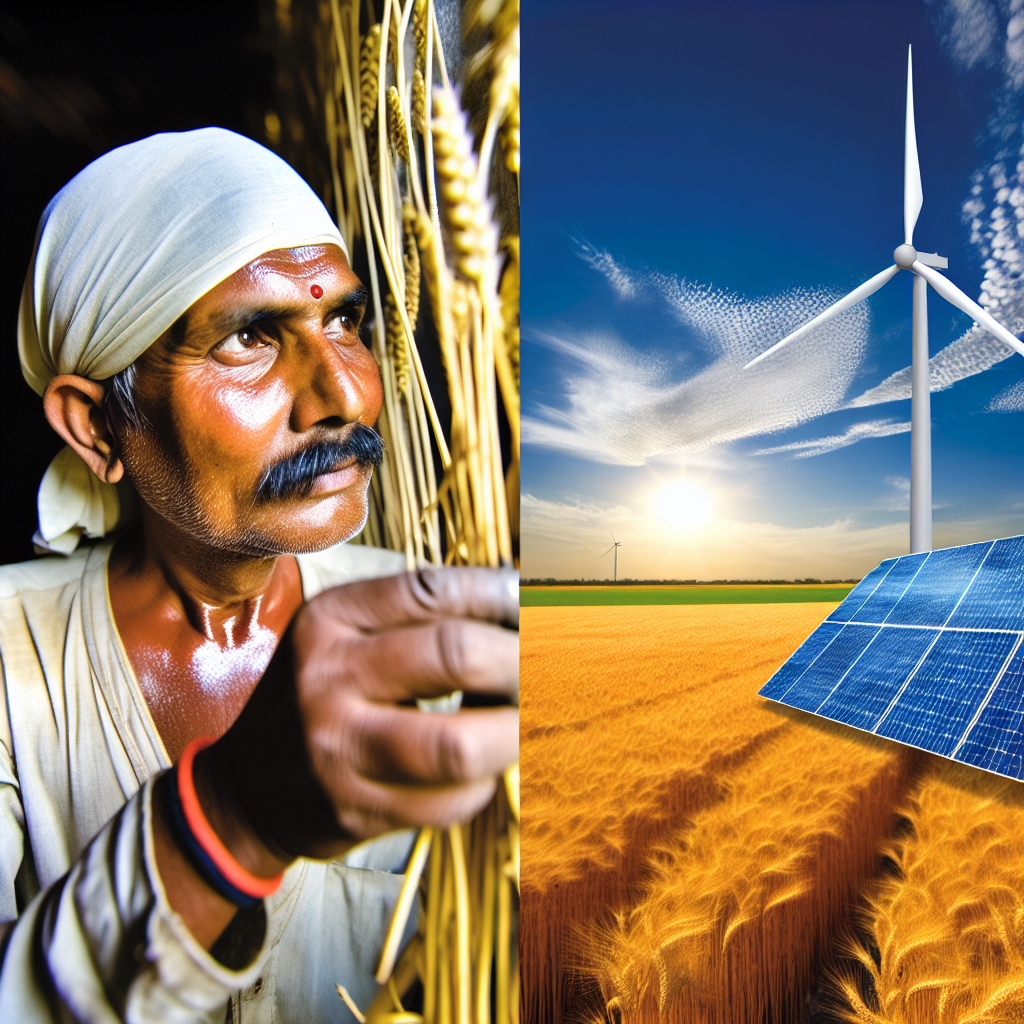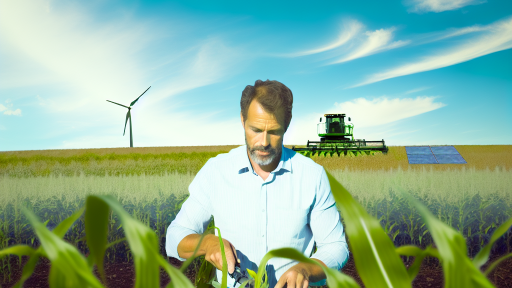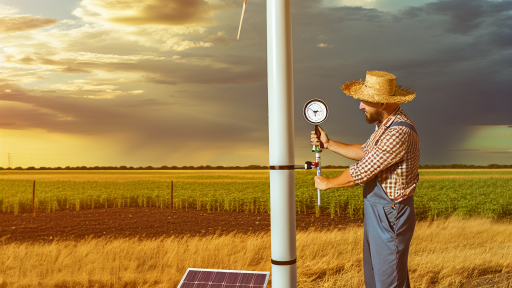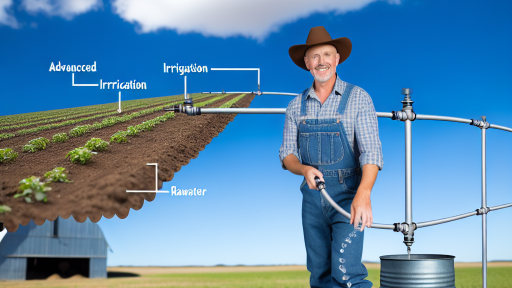Introduction to Sustainable Farming and its Importance
Defining Sustainable Farming
Sustainable farming fosters a balanced approach to agriculture.
This practice integrates ecological stability with economic viability.
It focuses on minimizing environmental impact while maximizing productivity.
Importance of Ecological Health
Healthy ecosystems contribute to successful agricultural systems.
Sustainable farming protects biodiversity and nurtures soil health.
Additionally, it supports clean water sources and air quality.
Addressing Food Security
Sustainable farming plays a crucial role in food security.
It ensures that present needs are met without compromising future resources.
Farmers apply innovative techniques to produce sufficient food sustainably.
Economic Benefits
Implementing sustainable practices can enhance profitability for farmers.
Long-term investments in sustainable methods often reduce operational costs.
Moreover, consumers are increasingly willing to pay a premium for sustainable goods.
Community Impact
Sustainable farming strengthens local communities and economies.
By supporting local growers, communities enhance their food sovereignty.
This approach fosters a sense of belonging and enhances community ties.
Transform Your Agribusiness
Unlock your farm's potential with expert advice tailored to your needs. Get actionable steps that drive real results.
Get StartedThe Role of Renewable Energy
Renewable energy solutions are vital for sustainable farming.
They reduce reliance on fossil fuels and lower greenhouse gas emissions.
Farmers can harness solar, wind, and bioenergy for their operations.
Overview of Renewable Energy Solutions for Agriculture
Introduction to Renewable Energy in Farming
Renewable energy plays a crucial role in modern agriculture.
It helps farms reduce their carbon footprints.
Additionally, it promotes energy independence for farmers.
Types of Renewable Energy Solutions
Several renewable energy solutions suit agricultural applications.
- Solar energy utilizes photovoltaic panels for electricity.
- Wind energy harnesses natural wind currents via turbines.
- Biomass energy converts organic materials into usable fuel.
- Geothermal energy taps into the earth’s natural heat.
Benefits of Implementing Renewable Energy
Implementing renewable energy offers multiple benefits for farmers.
- It reduces operating costs over the long term.
- Renewable energy improves sustainability practices.
- Farm productivity increases from reliable energy sources.
- It enhances resilience against energy price fluctuations.
Case Studies of Successful Implementations
Many farms showcase successful renewable energy implementations.
For instance, Green Valley Farms uses solar panels efficiently.
This approach significantly cut their electricity bills.
Similarly, Hilltop Wind Farm relies on wind turbines to power operations.
They generate excess energy sold back to the grid.
Challenges and Considerations
While renewable energy offers benefits, challenges exist.
Initial setup costs can be quite high for some farmers.
Moreover, space requirements for wind turbines may limit placement.
Farmers must also consider local regulations and incentives.
Overall, addressing these challenges is essential for success.
Future of Renewable Energy in Agriculture
The future looks promising for renewable energy in agriculture.
Advancements in technology will likely reduce costs further.
Additionally, government policies may encourage more farmers to adopt these solutions.
Ultimately, a shift toward renewable energy can create a more sustainable agricultural sector.
Benefits of Integrating Renewable Energy in Farming Practices
Cost Savings
Integrating renewable energy reduces long-term operating costs.
Farmers can save money on energy bills.
Showcase Your Farming Business
Publish your professional farming services profile on our blog for a one-time fee of $200 and reach a dedicated audience of farmers and agribusiness owners.
Publish Your ProfileInvesting in solar panels often leads to tax incentives.
These savings can be reinvested back into the farm.
Environmental Impact
Using renewable energy sources lowers carbon emissions.
This shift helps combat climate change effectively.
Sustainable practices promote better soil and air quality.
Farmers contribute to preserving natural ecosystems.
Energy Independence
Renewable energy reduces dependency on fossil fuels.
This independence enhances resilience against energy price fluctuations.
Farmers gain more control over their energy production.
They can utilize energy generated directly on-site.
Innovative Technology Adoption
Renewable energy encourages farmers to adopt new technologies.
Advanced methods can improve efficiency and productivity.
Implementing smart grids and energy storage solutions is becoming common.
Farmers can monitor and optimize their energy usage effectively.
Community Benefits
Local renewable energy projects can strengthen communities.
They create jobs and stimulate local economies.
Moreover, these initiatives promote educational opportunities.
Farmers can share knowledge about sustainable practices.
Uncover the Details: Role of Crop Rotation in Carbon Sequestration
Case Studies of Successful Sustainable Farming Projects
Solar Energy Utilization in Organic Farming
Green Valley Farms implemented solar panels across their property.
This initiative significantly reduced their electricity costs.
Moreover, it decreased their carbon footprint.
Additionally, they utilized solar energy to power irrigation systems.
Consequently, they maintained a steady water supply during dry seasons.
As a result, their crop yields increased by 25% over two years.
Wind Energy as a Sustainable Power Source
Windy Acres Ranch invested in wind turbines to harness renewable energy.
Their turbines now generate over 50% of their energy needs.
This reduces dependence on fossil fuels.
Furthermore, the ranch produces excess energy for the local grid.
This initiative generates revenue and promotes sustainability.
Integrated Pest Management with Renewable Practices
Evergreen Meadows combines eco-friendly practices with renewable energy.
They use solar-powered equipment for pest control.
In addition, they employ natural predators to manage pest populations.
This dual approach minimizes chemical usage significantly.
As a result, soil health and crop quality improved markedly.
Community Supported Agriculture and Green Energy
Harvest Community Farms focuses on local partnerships for sustainability.
They provide members access to fresh produce through subscriptions.
In return, they encourage members to support renewable energy projects.
This collaboration helped establish local solar farms.
Consequently, the community benefits from sustainable energy and agriculture.
Showcase Your Farming Business
Publish your professional farming services profile on our blog for a one-time fee of $200 and reach a dedicated audience of farmers and agribusiness owners.
Publish Your ProfileThese case studies showcase the viability of renewable energy in farming.
They illustrate how sustainable practices can lead to profitability.
Additionally, they highlight the importance of innovation in agriculture.
By adopting renewable energy solutions, farms can thrive sustainably.
Learn More: Economic Benefits Of Sustainable Agriculture
Challenges and Barriers to Implementing Renewable Energy in Agriculture
High Initial Investment Costs
Many farmers face significant initial investment costs for renewable energy systems.
These costs can deter small and medium-sized agricultural operations.
Accessing funding and financial support options can be complex.
Moreover, the perceived risk of investing in new technologies increases hesitance.
Lack of Technical Knowledge and Resources
Farmers often lack the technical expertise to implement renewable energy solutions.
Furthermore, ongoing maintenance and operation can present additional challenges.
This knowledge gap often leads to reliance on external consultants.
However, this adds to the overall costs of implementation.
Regulatory and Policy Barriers
Complex regulations can obstruct the development of renewable energy projects.
Obtaining permits often requires navigating bureaucratic processes.
In addition, inconsistent policies can confuse farmers about available incentives.
This unpredictability can discourage long-term investment plans in renewable technologies.
Infrastructure Limitations
In many rural areas, infrastructure to support renewable energy is underdeveloped.
This lack of infrastructure can hinder the installation of renewable systems.
For example, inadequate grid capacity can limit energy access from renewable sources.
Consequently, farmers may face challenges in connecting their systems to the grid.
Market and Economic Factors
Fluctuating market prices for traditional energy sources play a significant role.
If fossil fuel prices remain low, farmers may hesitate to invest in renewables.
Moreover, the economic viability of renewable solutions can vary widely.
This uncertainty may further complicate financial planning for agricultural operations.
Social and Cultural Resistance
Some farming communities may resist changing traditional practices.
Cultural norms can create barriers to adopting new technologies.
Additionally, misinformation about renewable energy solutions can hinder acceptance.
Building trust and awareness is essential for overcoming these social barriers.
Uncover the Details: Integrate Cover Crops for Better Carbon Storage

Technologies for Renewable Energy
Solar Energy Solutions
Solar energy harnesses sunlight to generate electricity.
It employs photovoltaic cells, which convert sunlight into power.
This technology is efficient and widely accessible for farmers.
Additionally, solar panels can be installed on various structures.
They use minimal land, preserving valuable agricultural areas.
Moreover, solar energy lowers energy costs on the farm.
Farmers can combine solar with storage solutions for reliability.
This system thus allows energy independence and sustainability.
Wind Energy Solutions
Wind energy captures kinetic energy from wind using turbines.
These turbines produce electricity for farm operations.
Showcase Your Farming Business
Publish your professional farming services profile on our blog for a one-time fee of $200 and reach a dedicated audience of farmers and agribusiness owners.
Publish Your ProfileWind power is ideal for open land with consistent wind flow.
Farmers benefit from reduced dependency on fossil fuels.
Moreover, wind turbines can coexist with agricultural practices.
They provide a dual-use solution for farmers aiming for sustainability.
Investing in wind energy encourages local job creation as well.
Farmers should assess their site’s wind potential before installation.
Biomass Energy Solutions
Biomass energy utilizes organic materials to generate electricity.
This includes crop residues, animal manure, and wood waste.
Farmers can repurpose waste products, minimizing environmental impact.
Biomass systems also produce valuable byproducts, like fertilizer.
Furthermore, they reduce landfill use by converting waste into energy.
This approach promotes a circular economy approach in farming.
Farmers should explore local biomass resources for best results.
Adopting biomass solutions leads to cleaner, sustainable farming.
Learn More: Farmers’ Guide to Surviving Climate Change Challenges
Policy and Financial Support for Sustainable Farming Initiatives
Importance of Government Policies
Government policies play a crucial role in promoting sustainable farming.
These policies can provide clear guidelines and objectives.
They create a stable environment for farmers to adopt sustainable practices.
Types of Support Available
Various types of support are available for sustainable farming initiatives.
- Financial assistance through grants and subsidies can alleviate initial costs.
- Tax incentives encourage investments in renewable energy solutions.
- Technical assistance helps farmers implement best practices effectively.
Partnerships with NGOs and Private Sector
Collaboration between governments, NGOs, and private organizations enhances support.
Non-profits often provide training and resources.
Private sector involvement can increase investment in renewable technologies.
Examples of Successful Policies
Several countries have implemented successful policies for sustainable farming.
The European Union’s Common Agricultural Policy supports eco-friendly practices.
In the United States, programs like the Environmental Quality Incentives Program offer financial aid.
Future Directions and Innovations
Future policies should focus on innovative approaches to support farmers.
Implementing smart agriculture can optimize resource use.
Adopting digital tools can enhance productivity and sustainability.
Future Trends in Sustainable Farming and Renewable Energy Integration
Adoption of Advanced Technologies
Farmers increasingly adopt precision agriculture technologies.
This includes the use of drones for monitoring crops.
Additionally, sensors help in managing soil health effectively.
Data analytics provides insights that enhance yields.
Moreover, machine learning optimizes resource use and planning.
Integration of Renewable Energy Sources
Solar energy becomes more prevalent on farms.
Farmers install solar panels to reduce energy costs.
Wind energy is also utilized, especially in open areas.
Biogas production from farm waste offers another solution.
These renewable sources can power farming operations.
Collaboration and Partnerships
Collaborations among farmers, organizations, and startups increase.
Such partnerships drive innovation in renewable technologies.
Showcase Your Farming Business
Publish your professional farming services profile on our blog for a one-time fee of $200 and reach a dedicated audience of farmers and agribusiness owners.
Publish Your ProfileGovernment incentives support sustainable initiatives.
Moreover, knowledge sharing fosters community growth.
These collaborations result in shared resources and better practices.
Focus on Sustainable Practices
Sustainable practices profoundly impact farming methods.
Crop rotation enhances soil fertility and reduces pests.
Organic farming methods gain popularity among consumers.
Cover cropping protects soil and enhances biodiversity.
Integrated pest management minimizes chemical usage.
Policy and Regulatory Support
Regulatory frameworks are evolving to support sustainability.
Policies incentivize the use of renewable energy in agriculture.
Subsidies for eco-friendly practices encourage adoption.
Furthermore, public awareness campaigns promote sustainable choices.
All these efforts create a conducive environment for change.
Additional Resources
Statements of Support for the Agriculture Resilience Act | U.S. …




